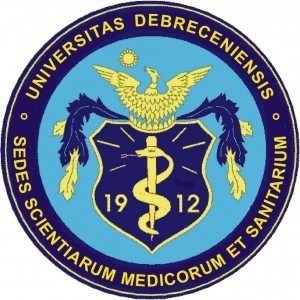Photos of university / #utwente
This two-year Masters programme teaches you how to control the behaviour of dynamic phenomena and systems in interaction with their environment.
Systems & Control is a multidisciplinary field focusing on the control of all kinds of technical systems. It combines knowledge of the mathematics of Systems and Control with specific knowledge of its applications e.g. mechatronic systems. You will investigate ways of developing mathematical models that reflect the key features of a system by employing differential equations, inequalities, algebraic equations and logical constraints. You will use advanced methods to simulate the modelled system. During simulations, control algorithms using feed-forward of feedback can be designed and tested. Within your specialization you will concentrate on elaborating theoretical aspects of control or you will focus on the technology of developing mechatronic devices and systems. You will learn advanced theories and techniques to create applications that were not possible until now including mobile robots, production machines, micro electromechanical systems and biomechanical devices. The Masters programme offers you access to world-class and state of the art facilities such as our Robotics lab. Graduates pursue a career in research and development, in either a corporate or an academic setting.
Programme internationalization:
- Studying abroad is optional.
This programme has a workload of 120 ECTS.
Specialities:
Robotics and Mechatronics:
Research activities in this specialization focus more and more on the field of advanced robotics, including robotics in medical applications. Mechatronics involves a synergistic combination of mechanical engineering, electronics and measurement and control in the design of products and processes. It focuses on Mechatronic Design, which can be defined as follows: the integrated and optimal design of a mechanical system and its embedded control system. By means of an integrated design of the mechanical parts and the measurement and control system, realized in electronic circuits or as an embedded computer program, mechanical constructions can achieve superior performance and become cheaper and more flexible. Well-known examples are the audio CD player and its successors the CD-ROM and DVD as well as many automotive applications, (mobile and flying) robots, advanced production machines, systems for telemanipulation, micro-electro-mechanical systems (MEMS) and so on. As a student, you will be able to tailor the programme to address your own individual interests and needs.
Control Theory:
This two-year Masterâs programme teaches you how to control the behaviour of dynamic phenomena and systems in interaction with their environment. Control problems have been around for a long time. With the rise of automated manufacturing in the nineteenth century, control mechanisms gained in importance. James Watt's flyball governor, a device that controls steam pressure, signified a breakthrough that directly contributed to the Industrial Revolution. To this day, the manufacture of servo mechanisms plays an important part in mechanical engineering (e.g. in robot technology). Within the electrical engineering community the need for a theoretical underpinning of the behaviour of interconnected components has been expressed in questions such as: how can we mathematically model a (complex) electrical circuit and, once a mathematical model has been established, how can we implement it as an electrical device?
Biomechatronics:
Biomechatronics is the interdisciplinary study of biology, mechanics, and electronics. It focuses on the research and design of assistive, therapeutic and diagnostic devices to compensate (partially) for the loss of human physiological functions or to enhance these functions. A thorough knowledge of the human healthy and eventually impaired physiology is required to optimally design biomechatronic devices. In particular, biophysical models of muscles, joints, central nervous system and sensors, and human motion control are very helpful for analysis and innovative designs. Also knowledge and skills in mechanical engineering, control engineering, system identification, and signal processing are required to realize devices that improve the quality of life of humans. Example of such devices are deep brain stimulators to suppress the symptoms of Parkinson disease, rehabilitation robotics to enhance neuro-rehabilitation of stroke survivors, wearable exoskeletons for humans that are unable to control their muscles (e.g. Spinal cord injured patients or Duchenne patients), prosthesis, brain computer interfaces, or support of cardiovascular and pulmonary function in the intensive care.
Scholarships / Grants:
University of Twente Scholarship:
Accreditation
Accredited by: nvao in: The Netherlands









